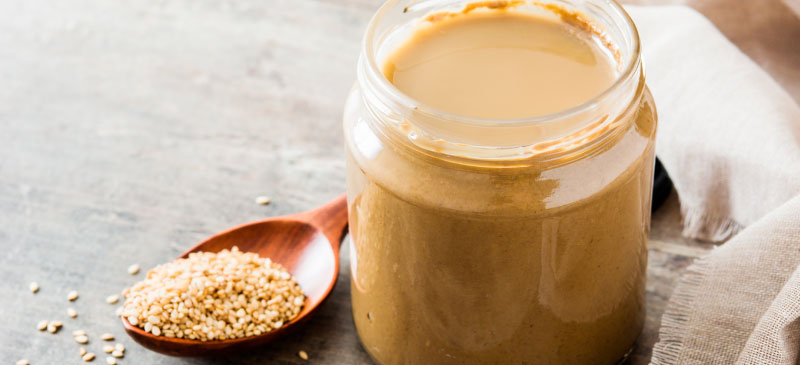
Tahini Benefits for Immunity, Heart Health & More
Introduction: Tahini, a creamy paste made from ground sesame seeds, has gained popularity in recent years due to its delicious taste and versatile nature. Beyond being a tasty addition to various recipes, tahini offers a range of nutritional benefits that make it a valuable component of a healthy diet.
Rich Source of Healthy Fats: One of the key attributes of tahini is its high content of healthy fats. These fats primarily consist of monounsaturated and polyunsaturated fatty acids, including omega-3 and omega-6 fatty acids. Consuming these healthy fats in moderation can help support heart health, reduce inflammation, and contribute to overall well-being.
Essential Vitamins and Minerals: Tahini is also a notable source of several essential vitamins and minerals. It contains significant amounts of calcium, iron, magnesium, phosphorus, and zinc, which are vital for maintaining bone health, supporting the immune system, and facilitating numerous enzymatic reactions within the body. Additionally, tahini is rich in vitamin E, an antioxidant known for its role in protecting cells from oxidative damage.
Plant-Based Protein: For individuals following a plant-based or vegetarian diet, tahini serves as an excellent source of protein. It contains all nine essential amino acids, making it a complete protein option. Incorporating tahini into meals can help ensure an adequate intake of protein, necessary for building and repairing tissues, as well as supporting various physiological functions.
Fiber Content: Tahini is a good source of dietary fiber, which plays a crucial role in maintaining a healthy digestive system. Adequate fiber intake can promote regular bowel movements, support satiety, and aid in weight management. Additionally, dietary fiber acts as a prebiotic, providing nourishment for beneficial gut bacteria and contributing to gut health.
Versatility in Culinary Applications: Apart from its nutritional benefits, tahini’s versatility in the kitchen makes it a desirable ingredient. It can be used as a spread on toast, a dip for vegetables, or as an ingredient in salad dressings, sauces, and desserts. The nutty flavor and creamy texture of tahini enhance the taste and nutritional profile of a wide range of dishes, making it an appealing choice for both savory and sweet preparations.
Conclusion: Tahini, with its rich nutrient profile, is a valuable addition to a healthy diet. Its healthy fats, essential vitamins and minerals, plant-based protein, and fiber content make it a nutritious choice for individuals looking to enhance their overall well-being. Incorporating tahini into various recipes not only adds a delightful flavor but also contributes to a balanced and wholesome eating plan.